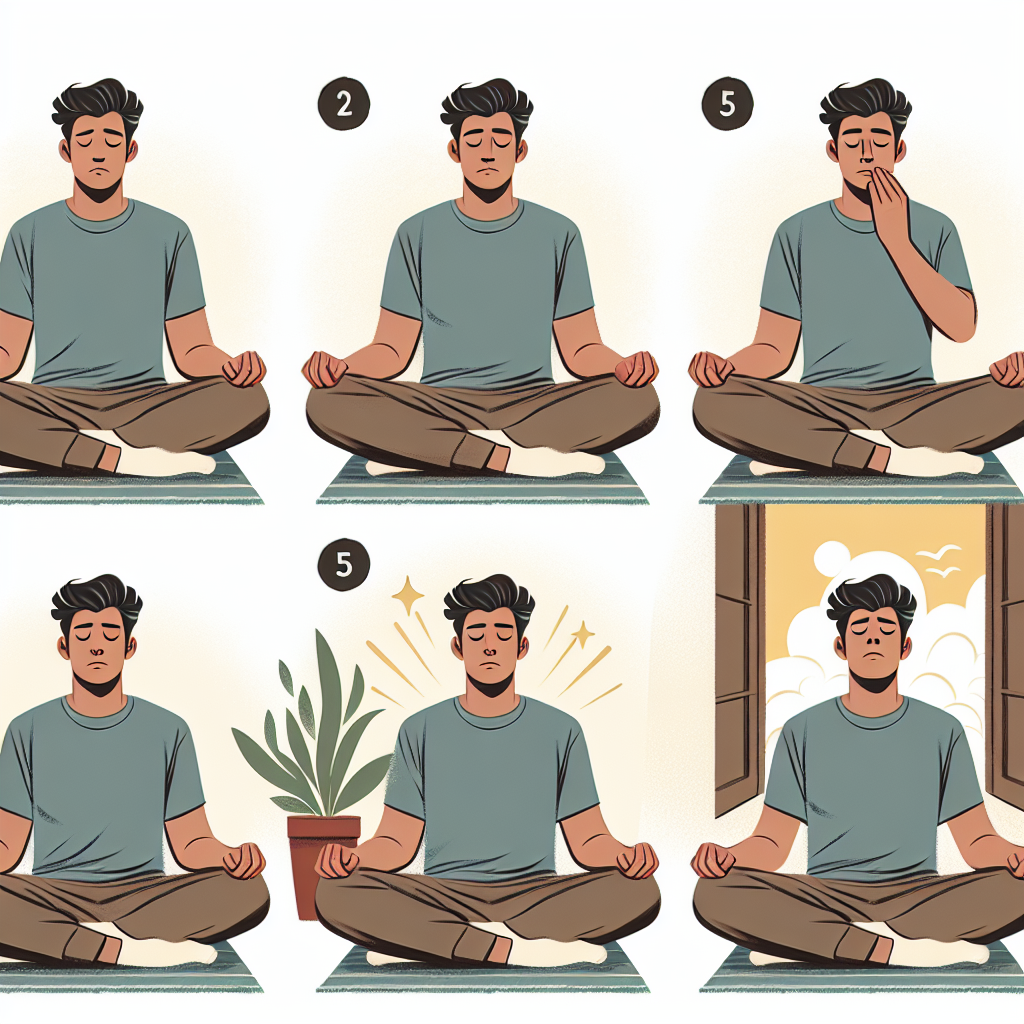
How to start basic meditation
How to Start Basic Meditation: A Beginner's Guide
Meditation is a practice that can enrich your life in numerous ways, from reducing stress and anxiety to improving focus and emotional well-being. As more people seek to introduce mindfulness into their daily routines, the question arises: how to start basic meditation? This article will guide you through the steps of beginning your meditation journey, exploring different techniques, establishing a routine, and understanding the benefits.
Understanding Meditation
Before diving into the practice, it's important to understand what meditation is. At its core, meditation is the act of focusing your mind to achieve a mentally clear and emotionally calm state. It often involves techniques such as mindfulness, concentration, and controlled breathing.
Benefits of Meditation
The benefits of meditation are vast, and many people turn to it for various reasons. Some of the most common benefits include:
- Reduction in stress and anxiety
- Improved focus and concentration
- Enhanced emotional health
- Better self-awareness
- Increased attention span
- Promotion of a healthy lifestyle
Setting the Stage for Meditation
Creating a Comfortable Space
Your meditation space should be a place where you can feel relaxed and at ease. Here are some tips for creating an effective atmosphere:
- Choose a Quiet Location: Find a space with minimal distractions.
- Consider Comfort: Use cushions or mats for seating.
- Set the Mood: Dim lights or light candles to create a serene environment.
- Aromatherapy: Use essential oils like lavender or sandalwood to promote relaxation.
Choosing the Right Time and Duration
When you meditate can significantly impact your practice. Begin with short sessions and gradually increase their duration:
- Start with 5-10 minutes a day.
- Find a time that fits your schedule - early morning, lunch break, or before bed.
- Consistency is key—aim for the same time each day.
Steps to Start Basic Meditation
1. Find a Comfortable Position
Whether you choose to sit on a chair, cushion, or the floor, make sure your body is comfortable:
- Sitting: Keep your back straight but relaxed.
- Lying down: Ensure you won’t fall asleep.
- Standing or walking: These methods can also be effective.
2. Focus on Your Breath
Your breath can be an anchor for your mind. Pay attention to its natural rhythm:
- Inhale deeply through your nose.
- Hold your breath for a moment.
- Exhale slowly through your mouth.
3. Observe Your Thought Patterns
As you meditate, thoughts will inevitably arise. Instead of engaging with them, try to observe them:
- Recognize your thoughts: Acknowledge what comes to your mind.
- Let them go: Picture them floating away like clouds.
4. Return to Your Breath
Whenever you notice your mind drifting, gently guide it back to your breath:
- Be patient and non-judgmental with yourself.
- Each time you return to your breath, remember this is part of the practice.
5. Gradually Increase Session Length
Once you feel comfortable with shorter sessions, gradually increase the time. You can aim for:
- 10 minutes after a few days.
- 15-20 minutes after a couple of weeks.
- 30 minutes or longer as you progress.
Different Meditation Techniques
1. Mindfulness Meditation
This technique encourages you to stay present and observe without judgment. Key elements include:
- Focus on your breath.
- Pay attention to any sensations in your body.
- Acknowledge thoughts as they come and go.
2. Guided Meditation
Guided meditations utilize recordings or apps to lead you through the process:
- Look for reputable apps like Headspace or Calm.
- Guided sessions can range from breathing exercises to visualizations.
3. Loving-Kindness Meditation
This technique encourages you to cultivate an attitude of love and kindness toward yourself and others. Steps include:
- Repeat phrases like “May I be happy. May I be healthy.”
- Group meditations can enhance this practice.
Overcoming Challenges in Meditation
Dealing with Distractions
It's normal to face distractions during meditation. Here are some strategies:
- Identify potential distractions and address them before starting.
- Use calming background sounds or music to enhance focus.
- Practice in a time slot where interruptions are unlikely.
Managing Expectations
Many beginners have high expectations and may get discouraged early. Keep the following in mind:
- Meditation is a skill that develops over time.
- It’s okay to have “bad” meditation days; every session is valuable.
- Celebrate small victories, such as the ability to sit in stillness.
Establishing A Consistent Meditation Practice
1. Set a Daily Reminder
Creating a habit requires commitment. Consider:
- Using phone alarms or calendar reminders.
- Finding a buddy to meditate with for accountability.
2. Create Rituals Around Your Practice
Establishing rituals can make meditation feel more special:
- Incorporate quiet time before and after meditation.
- Enjoy a cup of tea as a pre- or post-session treat.
3. Experiment with Different Practices
Meditation is not a one-size-fits-all practice. Try different techniques to discover what resonates with you:
- Explore visualization exercises.
- Consider body scan meditations.
- Try different postures or environments.
The Long-Term Benefits of Regular Meditation
Diving into how to start basic meditation is just the beginning; the long-term benefits are many. Regular meditation can help cultivate resilience against stressors, enhance emotional intelligence, and improve relationships. Even a few minutes of daily practice can lead to significant shifts in your perception of life. Your overall well-being, focus, and perspective can significantly improve, making it a worthwhile endeavor to incorporate into your life.
Conclusion
Embarking on a meditation journey can feel daunting, but with patience and persistence, it can become a cherished part of your daily routine. Start small, be kind to yourself, and remember that every moment spent in meditation contributes positively to your mental and emotional health. Take the plunge into meditation, and you may discover a wealth of inner peace just waiting to be uncovered!
By Guest, Published on October 17th, 2024